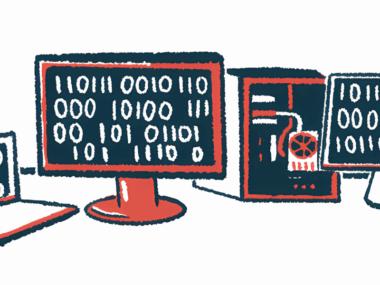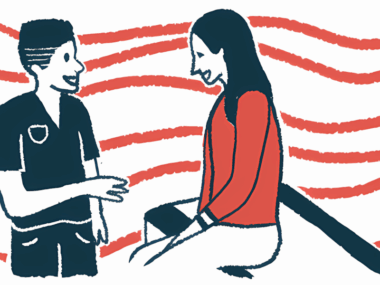I’m learning what drains and recharges my MS social battery
Socializing requires careful planning and self-care
Written by |

I was probably never as outgoing or sociable as some people, but there was a time when I genuinely enjoyed most social activities. I was the guy who, by the time a long flight was over, had made at least two new friends and was invited to someone’s wedding. Even when I wasn’t feeling particularly sociable, I could still muster a smile and interact convincingly, if not completely honestly.
I still enjoy it, but my ability to participate in social activities is waning.
If I’d been paying better attention, I may have noticed that my ability to socialize — both actual and pretend — had declined right before my diagnosis of multiple sclerosis (MS). As the disease progressed, these abilities, known as a social battery, continued to shrink. That battery isn’t gone, but it doesn’t have the energy level it once did, and like so many things in my life with MS, I’ve had to adapt how I use it. This means both knowing what drains it and how to recharge it.
Fortunately, I’m a bit of an extrovert, so my social battery was large to start with. That can be both a blessing and a curse, however. A larger social battery might need to be recharged less often, but when it becomes completely empty, that means I’m drained, too. More energy available to use means more energy expended, and for a person with MS, energy is very precious.
‘Knowing is half the battle’ for my social battery
The size of my social battery is a personal characteristic, but what about the characteristics of those I’m socializing with? Family and friends use up less energy because of my familiarity with them and theirs with me. But a stranger might be more exhausting because I have to start at the beginning of anything that needs explaining. A new person may also have a communication style, or pace, I’m not used to, requiring extra energy for a brain affected by MS to comprehend and keep up with.
The size of the group I’m socializing with matters, too, even if they’re loved ones. The amount of cognitive energy that has to be expended to keep up with multiple conversations can drain my battery quickly. Socializing with large groups may last longer than interacting with a smaller one or an individual, and I can become overwhelmed quickly in a crowd and have to limit the time I spend socializing accordingly.
If you grew up watching G.I. Joe cartoons like I did, you’d know the phrase, “Knowing is half the battle.” With a social battery limited by MS, it’s vital that I not only know what kind of social interactions affect my limited energy levels, but that I also know the signs that indicate they’re getting low, and how to replenish them.
Social fatigue first shows up as a decrease in my normally good humor, and I have to take care to excuse myself before I become irritable. Another sign is when I have to more often ask someone to repeat something. My hearing isn’t the greatest, but as I become fatigued, my ability to comprehend is affected. When I stop talking, or even interacting through gestures or expressions, that’s the final stage.
Hopefully, before I get to that point, I’m wise enough to remove myself to a more soothing environment in order to reset. Having to do that would have struck me as selfish for most of my life, but I’ve begun to see it as the self-care that it is.
Self-care is also choosing how I use my energy, and this might include avoiding some of the social activities I once enjoyed. Still, I comfort myself in knowing that what is good for me can also be good for others.
I used to think of the “spoons” that stand for the amount of energy I have on a given day as only representing physical activities. I see now that socializing can require a spoon, too. Or several spoons. I don’t want my MS to turn me into an unwilling introvert, and I suppose it really hasn’t. I’m still outgoing; I’ve just had to adapt to how far and how long I can go.
Note: Multiple Sclerosis News Today is strictly a news and information website about the disease. It does not provide medical advice, diagnosis, or treatment. This content is not intended to be a substitute for professional medical advice, diagnosis, or treatment. Always seek the advice of your physician or other qualified health provider with any questions you may have regarding a medical condition. Never disregard professional medical advice or delay in seeking it because of something you have read on this website. The opinions expressed in this column are not those of Multiple Sclerosis News Today or its parent company, Bionews, and are intended to spark discussion about issues pertaining to multiple sclerosis.




Lisa Bowser
Thank you for your article! It reminds me of when I go to my mom's for Christmas Eve. I go with my husband and meet my sister and her husband there. By 7:00, or more likely before, I'm ready to pack it in and go home. We have an hour drive back home, and just socializing can be exhausting. I also have to be careful to not get too exhausted, as I'm very cranky at that time. The holiday are absolutely exhausting. I'm tired just thinking about them. This Thanksgiving, we will be going to my husband's family and his friends afterwards. I don't feel great as I write this, but I am most certainly grateful. Stay blessed and be a blessing!
Jane Abbott
I also am an extrovert but noticed that my endurance is a bit lacking. I was glad to hear that when you fatigue it's harder to comprehend things because sometimes I feel like it's just me! Great article.
Linda Neuberger
You hit the nail on the head! You're so awesome the way you describe MS...it's perfect!!